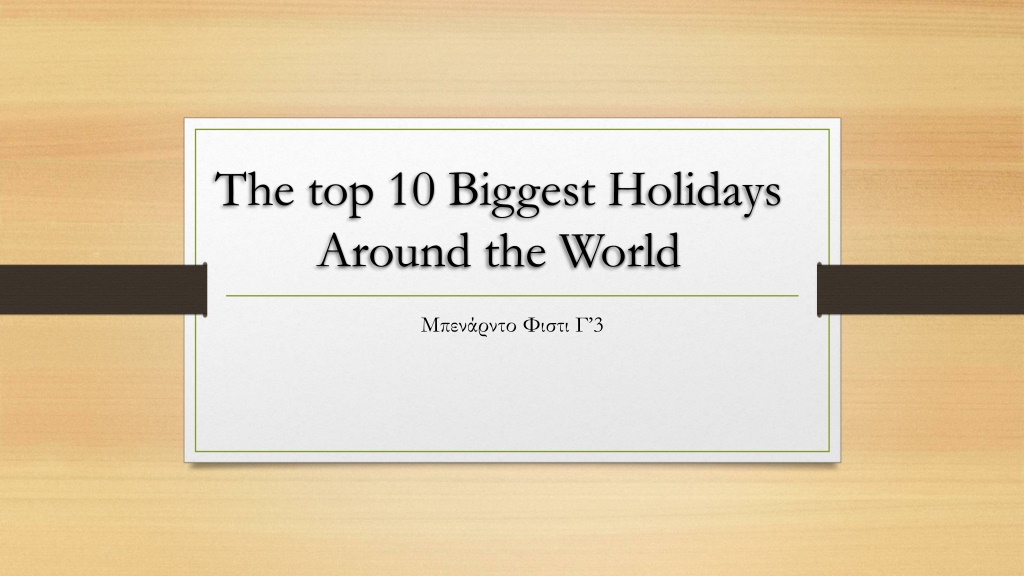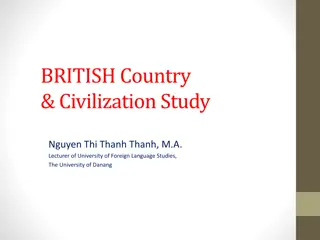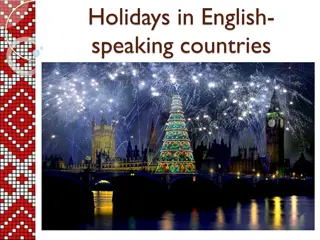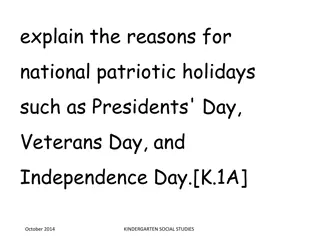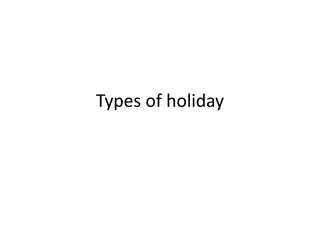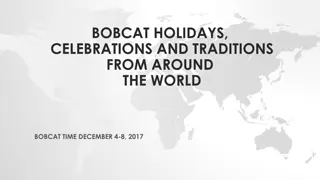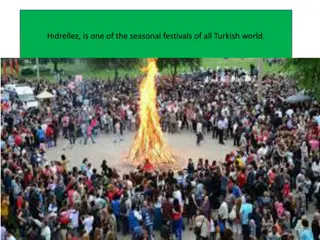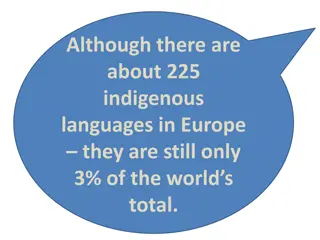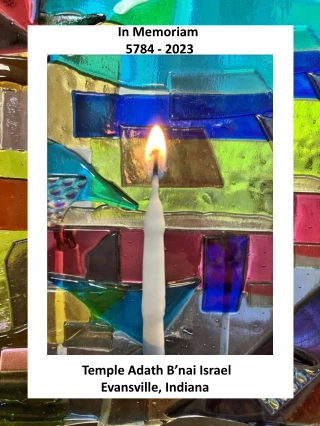The Top 4 Biggest Holidays Celebrated Around the World
Ramadan is the holy month of fasting in Islam that rotates through the seasons. Christmas celebrates the birth of Jesus and is observed by Christians and non-Christians worldwide. New Year marks the beginning of a new calendar year and is celebrated in various cultures. Easter is the Christian festival celebrating the Resurrection of Jesus. Each holiday holds significant cultural and religious importance.
Uploaded on Sep 22, 2024 | 0 Views
Download Presentation

Please find below an Image/Link to download the presentation.
The content on the website is provided AS IS for your information and personal use only. It may not be sold, licensed, or shared on other websites without obtaining consent from the author. Download presentation by click this link. If you encounter any issues during the download, it is possible that the publisher has removed the file from their server.
E N D
Presentation Transcript
The top 10 Biggest Holidays Around the World 3
RAMADAN Ramadan, Arabic Rama n, in Islam, the ninth month of the Muslim calendar and the holy month of fasting. It begins and ends with the appearance of the crescent moon. Because the Muslim calendar year is shorter than the Gregorian calendar year, Ramadan begins 10 12 days earlier each year, allowing it to fall in every season throughout a 33-year cycle. Islamic tradition states that it was during Ramadan, on the Night of Power (Laylat al-Qadr) commemorated on one of the last 10 nights of Ramadan, usually the 27th night that God revealed to the Prophet Muhammad the Qur n, Islam s holy book, as a guidance for the people. For Muslims, Ramadan is a period of introspection, communal prayer ( al t) in the mosque, and reading of the Qur n. God forgives the past sins of those who observe the holy month with fasting, prayer, and faithful intention
CHRISTMAS Christmas (which means The Mass of Christ ) is a Christian holiday that celebrates the birth of Jesus, who Christians believe is the Son of God. Christmas is also a cultural holiday for many non-Christians. Christmas Day is celebrated on the 25th of December. It is a really important day, mainly for Christians, along with Easter (which celebrates the death and resurrection of Jesus). The season of Advent begins on a Sunday about four weeks before Christmas. During Advent, people prepare for Christmas. The Christmas season (called Christmastide) ends 6 January, also called the Twelfth Day of Christmas. On this day, Christians celebrate Epiphany . People celebrate Christmas in many places around the world. Some people celebrate Christmas as a religious holiday. In some places, Christmas is a time of celebration for Christians and non-Christians alike. Christmas traditions are different in different countries. However, they almost always include a feast; giving gifts or cards; and enjoying church or public festivities, like singing Christmas carols and songs. Christmas is not limited to Christianity. The idea of Santa Claus is based on Saint Nicholas, a 4th-century Christian saint of Greek origin.
NEW YEAR New Year is the time or day at which a new calendar year begins and the calendar's year count increments by one. Many cultures celebrate the event in some manner.[1]In the Gregorian calendar, the most widely used calendar system today, New Year occurs on January 1 (New Year's Day, preceded by New Year's Eve). This was also the first day of the year in the original Julian calendar and the Roman calendar (after 153 BC).[2] Other cultures observe their traditional or religious New Year's Day according to their own customs, typically (though not invariably) because they use a lunar calendar or a lunisolar calendar. Chinese New Year, the Islamic New Year, Tamil New Year (Puthandu), and the Jewish New Year are among well- known examples. India, Nepal, and other countries also celebrate New Year on dates according to their own calendars that are movable in the Gregorian calendar
EASTER Easter, Latin Pascha, Greek Pascha, principal festival of the Christian church, which celebrates the Resurrection of Jesus Christ on the third day after his Crucifixion. The earliest recorded observance of an Easter celebration comes from the 2nd century, though the commemoration of Jesus Resurrection probably occurred earlier. The English word Easter, which parallels the German word Ostern, is of uncertain origin. One view, expounded by the Venerable Bede in the 8th century, was that it derived from Eostre, or Eostrae, the Anglo-Saxon goddess of spring and fertility. This view presumes as does the view associating the origin of Christmas on December 25 with pagan celebrations of the winter solstice that Christians appropriated pagan names and holidays for their highest festivals. Given the determination with which Christians combated all forms of paganism (the belief in multiple deities), this appears a rather dubious presumption. There is now widespread consensus that the word derives from the Christian designation of Easter week as in albis, a Latin phrase that was understood as the plural of alba ( dawn ) and became eostarum in Old High German, the precursor of the modern German and English term. The Latin and Greek Pascha ( Passover ) provides the root for P ques, the French word for Easter.
Valentine's Day Valentine s Day, also called St. Valentine s Day, holiday (February 14) when lovers express their affection with greetings and gifts. Given their similarities, it has been suggested that the holiday has origins in the Roman festival of Lupercalia, held in mid-February. The festival, which celebrated the coming of spring, included fertility rites and the pairing off of women with men by lottery. At the end of the 5th century, Pope Gelasius I forbid the celebration of Lupercalia and is sometimes attributed with replacing it with St. Valentine s Day, but the true origin of the holiday is vague at best. Valentine s Day did not come to be celebrated as a day of romance until about the 14th century.
Chinese New Year Although this holiday may have Chinese in the name, the Chinese New Year is celebrated all across Asia and other Asian populations around the world. Their festivities are so charming that plenty of other people who don t have any heritage join in on the fun, too. The Chinese New Year doesn t have a set date since it follows the lunar calendar, but the celebrations usually take place in late January up until mid- February. On top of ringing in a new year, this holiday also showcases the Chinese Zodiac signs. Each year is represented by a different animal. 2019 is the year of the pig, which is a symbol of wealth and good fortune. There are many different ways people celebrate the Chinese New Year. One of the most common traditions is to set off firecrackers. Red is viewed as a lucky color, so you can see tons of red decorations and red Chinese New Year cards.
Diwali Diwali, the festival of lights, is a major Hindu holiday that pays homage to the gods and marks the beginning of a new year. Many Hindus call upon Lakshmi, the goddess of prosperity, by lighting an abundance of lamps. Not only do these lights welcome the goddess, but light is also a Hindu symbol of knowledge and everything good in the world. The Diwali festival, which usually starts in late October, lasts for five fun days. During these celebrations, there are lots of feasts, exchanges of special Diwali cards and gifts, fireworks, and spending time with loved ones. Many people also believe that gambling will bring them good fortune for the rest of the year.
Halloween Although your country may not celebrate Halloween, cultures all around the world have tons of similar holidays that take place in the fall. The reason why is because humans have always been fascinated by death. Some holidays are spooky, lighthearted, heartfelt, or even a combination of the three. If you live in America, Halloween is a crazy day where people dress up in costumes, binge on candy, and party like there s no tomorrow. The best Halloween parties are filled with creepy decorations, spooky music, frightening food and drinks, and strange games. This holiday is exciting for kids and adults alike because it s a chance to become someone or something else and let loose. At night, you ll find many streets flooded with kids traveling from house to house as they hunt for the best treats in town. If you travel to Mexico on October 31st, you ll get to experience D a de Los Muertos, which means Day of the Dead. Despite the name, this holiday is actually an important festival that lasts for three days. Mexicans believe that the souls of the dead return during this brief timeframe, so lots of food and gifts are left out as offerings.
Bodhi Day Bodhi Day is one of the most important Buddhist holidays because it commemorates Buddha s enlightenment under a Bodhi Tree. Since there are many different kinds of Buddhists across the world, there is no exact date for Bodhi Day. Depending on which region you re located and which calendar you re following, Bodhi Day is usually celebrated sometime between May and June. The date of Bodhi Day relies on when Vesak approaches. Vesak is a holy combination of Buddha s birth, life, and death. If you re a Theravada or Tibetan Buddhist, then you ll celebrate Bodhi Day in one day. If you re a Mahayana Buddhist, Bodhi Day is spread across three days. Buddhism is focused on meditation and following the path to enlightenment. It comes as no surprise that this holiday is a quiet, reflective one. Many Buddhists celebrate Bodhi day by meditating, reading, chanting, or performing acts of kindness.
Hanukkah Another popular winter holiday is Hanukkah, which is the Hebrew word for dedication. This celebration takes place over eight days. Its purpose is for Jewish people all around the world to celebrate their religion and history. Unlike Christmas, Hanukkah s origin story isn t as peaceful. Around 200 B.C., Israel was controlled by Syrians and Greeks. During one terrible event called the Maccabean Revolt, thousands of people were killed and Jerusalem s holy Second Temple was destroyed. Despite these horrors, heroes were able to rise and seek justice. Judah Maccabee, the son of a Jewish priest, rose to power and helped Israel reclaim Jerusalem within two years of fighting. In order to reclaim their culture, Judah s priority was to restore the Second Temple to its original glory.
Thanks for watching by BENARDO FISHTI
